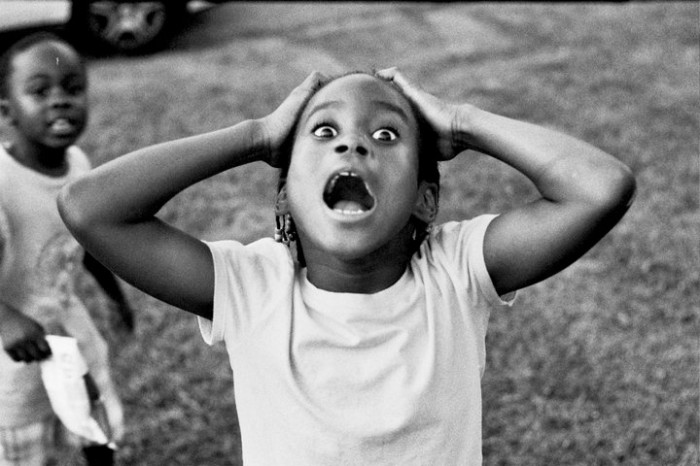Warning: Adult language ahead!
To begin with, thought, or rather understanding, is preceded by a lack thereof—to take something in, there first has to be space for it.
If your mind is readily open, if it is empty, then please take this in.
Preachy comes to mind as I think in reference to God, which I seldom do, but here I will, and without preachy intent.
God is a misapplied term—while revered, praised, feared and cursed—the common concept of God is well in the clutch of social power structures being bonded with religion. It reinforces a power structure and extends its services of moral cleansing to those inclined to depredate sheep.
We’ve come to regard a president, or any other authority, in the same way we do God, as the person in charge, with the right to control and govern our lives.
I hate the word God.
I replace it entirely with another—nature. God is nature—nature is God.
Nature is pure in our world, if pure does exist, and nature is all that is needed to sustain life.
This concept is brilliant because nature is present and profoundly real in our perceivable world, and can therefore, be readily understood compared to abstract notions of a personified God supreme.
From birth, there’s a connection to nature and its path, and we would do ourselves well if we believe in nature. However, for most of us, shortly after we’re born, the connection to nature begins to be lost—severed.
Our modern civilization, which we’re subjected to from birth, begins the process of making us civil and obedient, of bringing us into the great fold of social structures through it’s wonderful, well established institutions. I say we then become like animals in a zoo, in artificial habitats, governed by ill-conceived concepts of God, state, family or the like.
Subjects of ideologies indoctrinated to us and later to be upheld and defended by us in the name of our religion, country, culture, prosperity, security.
That’s a great leap from natural to civil.
Such a contrast exists between civilization and nature. One is the bush and the tall grass with wild flowers for bees, the other is plastic flowers, lawns treated with poisons and tamed.
Civilization destroys much of the nature that is within ourselves and beyond us. The intent of nature, its nurturing qualities, are abandoned for a grievous and unnatural reality which becomes many of our lives.
As a conscious witness to this reality, it is necessary to speak boldly, from love, trusting my intentions, sparing no truth. For some time now, longer than I can remember, my heart has been sad.
Though I have and will smile often and express fully my feelings, I still feel a sorrowful longing permeating like from a well-rooted pain. Not a pain that awakens zeal for life, but one that follows from the deprivation of the essential thing itself—nature.
Without nature—the essence of life, how do we feel alive?
How do we live?
Our purpose, our identities become lost in the minutia of modern society and its ways. Like in the big city, where many people are busy at jobs, and so few are more meaningful than the vagrant who collects cans and bottles to recycle.
No one will cause less harm than the person who does nothing at all but lay in the sun. How do we regard that vagrant who collects cans and bottles, and how do we regard that person who lies all day in the sun?
The success of today’s modern, civilized society can be measured by the ill-health of life and our environments, and how unnaturally we live.
Can we sympathize and identify this pain, or are we the ones who have become too numbed to it?
I feel this pain, all the time, I’m aware, sober, awake.
Maybe that’s why we move about so frantically like the busy bees which have no time for sorrow, or we seek forms of escape or distraction. We delude ourselves, yet still our lives are plugged into a product reality, and we manage our resulting pain.
Now, even the privilege and convenience of being the cooperative has lost its thrill, it is itself a delusion—the American dream is disrupted by its incongruence with reality.
It is challenging to speak to those who have become so far gone, that the pain is adapted, like a splinter under the flesh. I’ll try to imagine how it must be to accept this way, and I’ll admit that I believe that this type of suffering exceeds my own.
These words are directed to those generations of mothers and grandmothers, fathers and grandfathers that have lost touch with nature and have conformed completely to the detrimental aspects of this developed society.
Let’s admire the sun rising and setting, express true love and compassion for our lives, live free and well.
Will we argue against the impracticality of the ideologies we maintain, which have turned clear waters dark, verdant lands barren, fresh air into smog, made families apart and persons distant and in hateful opposition, species extinct and threatened, suffering prevalent, an existence that is often dreaded, potentials unrealized, and a tomorrow that is likely doomed?
Do I exaggerate?
I know these realities well. I’ve experienced them, I’ve seen them, I’ve heard their causes advocated, I’ve been a part of them, and I know now wholeheartedly that they must not be perpetuated any longer. I reject the current state of our world.
Who stands in the way of social progress, and makes ideals impractical?
Who perpetuates these horrors and cower behind the legitimacy of the institutions that devise them, carry them out, and who defends the rights of these institutions in order to earn a privilege? We all do.
We propose that we cooperate rather than compete, question and think rather than obey, set free rather than control, be ourselves rather than conform, give in to nature rather than defy it, and love all rather than fear—this is the greatest leap.
Through this we can realize what I believe we all seek—a good life.
I know how the idea of radical change can be frightening, how it questions what we’ve done with our lives, who we’ve become, and what we’ve come to believe and value, but change must occur, change will occur.
It must first occur within us. Will we discover or rediscover ourselves? Will we confront and unlearn our fears? Will we be silent and listen? Will we learn to be open, to be vulnerable, to have courage and abandon fear, or won’t we?
It’s evident that faith in our systems is tapering—that our superficial ways are no longer tenable. We know that we are unwell, that we are killing us, that is our reality.
We know that we are in a time of crisis. Our pervading ideologies have placed societies on a course toward environmental and economic catastrophe. We know that we have lost touch with nature and ourselves, and the resulting pain is no longer sufferable.
Together we can change the course.
We can respect nature and live naturally, we can exercise free-will, we can live freely and without oppression, we can build sustainable homes and communities respecting all life and the environment, we can become well, and preserve the same benefits for generations to come.
We can no longer have doubt, we can no longer have fear, and we can succeed.
The revolution is alive! May our children one day honor us for having made the world a better place.
Love elephant and want to go steady?
Sign up for our (curated) daily and weekly newsletters!
Apprentice Editor: Ashleigh Hitchcock / Editor: Rachel Nussbaum
Photo: courtesy of the author












Read 0 comments and reply